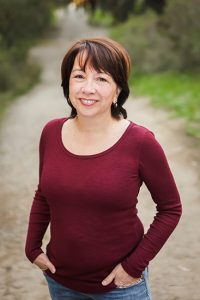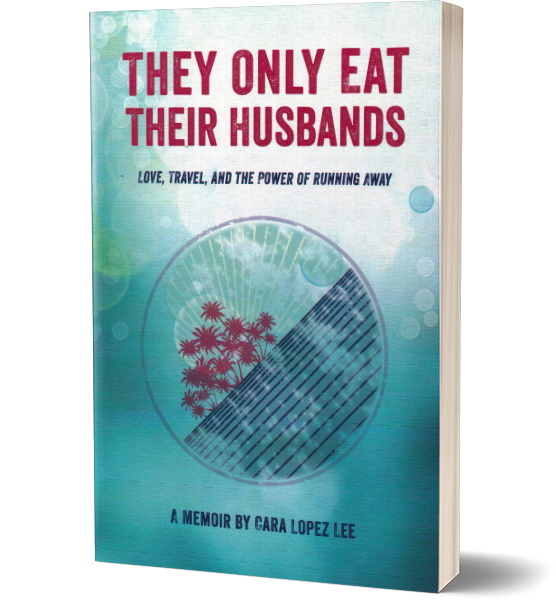November 2, 2012
“Aldous Huxley called Lake Atitlán ‘the most beautiful lake in the world’…until he went to the next lake,” Dale says. We’ve seen photos of the serene aqua caldera: formed by ancient volcanic eruptions, filled by centuries of natural springs and heavenly rains, and encircled by mountains — including three quiet volcanoes birthed by their violent parent. But photos are all about best behavior. We’ve accepted that Atitlán might not say “cheese” when we arrive.

Aldous Huxley called Lake Atitlán “the most beautiful lake in the world.”
Our shuttle-ride from the colonial city of Antigua to the lakeside village of San Marcos takes about five hours – our shortest travel-day in Guatemala. We use the time to switch from the eager impatience of trekkers to the relaxed indolence of vacationers. I’ve promised to do as much nothing as I can stand for the next week, and Dale has chosen to believe me.

As we summit the winding road to the lake, we catch our first glimpse of the caldera.
Our van is so full that we’re stuck in the two jump-seats, squeezing our ass-muscles in a vain effort to avoid being thrown into the door. As we summit the winding road to the lake, we catch our first glimpse of the caldera. Two young women lean across my lap with camera-phones, trying to snatch shots between power lines and stalks of maize. So far, Atitlán is living up to its pictures. It’s a summer-blue day, and midday sun brushes the thick green mountainsides with a blue-black haze.

Regulations say a lancha cannot carry more than 15 passengers. Our captain doesn’t leave until we’re carrying at least 25, plus chickens.
We pile out near the dock in Panajachel, then pay 40 quetzales for two seats on a public boat. Regulations say a lancha cannot carry more than 15 passengers on the sometimes choppy lake. But our captain doesn’t leave until we’re carrying at least 25, plus chickens. Nobody complains. What other choice do we have, unless we want to spend more than double on a private boat? Dale gives me an inscrutable stare from the sun-speared bow. I sit under the awning and share nervous laughter with the Spanish woman behind me.
“The boat is so low in the water…”
“I’m trying not to think about it.”
The sides of the water-bus rise just inches above the churning waterline. I’m relieved when locals and tourists disembark at each stop, only to be alarmed when new passengers replace them. I wrestle my way through the crowd to roast with Dale in the bow. If we go down, we’ll go down together.

I’m relieved when locals and tourists disembark at each stop, only to be alarmed when new passengers replace them.
When we step ashore in San Marcos, we follow a footpath between small buildings and trees, following hand-painted signs for the Aaculaax Hotel. Just three minutes from the dock, we turn into a green arbor, a tunnel of light and shade that opens into a garden abundant with tropical flowers, oversized fruits, and giant leaves. The hotel climbs a cliff-side in an inviting tumble of white buildings, warm woods, and cool rocks, with wild garden and tame jungle woven throughout.


The hotel climbs a cliff-side in an inviting tumble of white buildings, warm woods, and cool rocks, with wild garden and tame jungle woven throughout.
In a quiet courtyard, young Mayan women paint stained glass fixtures for the hotel’s new rooms. They giggle and wish us “Buenas Tardes,” as we pass and head up steep stone stairs to the Pescado Room.


In a quiet courtyard, young Mayan women paint stained glass fixtures for the hotel’s rooms.
Pescado refers to the room’s windows: stained-glass fish that let in natural light in shades of blue, yellow, green, and clear. The bed faces a floor-to-ceiling window that frames a self-satisfied view of two volcanoes overlooking the lake. Out the back door and up more steps, we find an open-air kitchen with a wood-stocked fireplace, a couch, lounge chairs, and a view even more egomaniacal than the one from the bedroom.



The open-air kitchen has a view even more egomaniacal than the one from the bedroom.
The only downside: we didn’t book far enough ahead, so we’ll only have two nights in this room before moving to another. But we didn’t even know about the Aaculaax until we arrived in Guatemala, so we’re grateful to be here at all.

We didn’t book far enough ahead, so we’ll only have two nights in this apartment before moving to another.
After settling in, we return to the footpath, part of an open-air maze that connects this lakeside tourist area. We follow one of the two main arteries uphill for a few minutes, until we hit the modern road that splits tourists from locals, whose neighborhood rises up the mountainside. Dots-and-dashes of red, three-wheeled tuk-tuks dash back and forth along the blacktop, their motors chugging, “tuk-tuk-tuk-tuk-tuk.” We cross the street and enter a cozy indoor-outdoor restaurant and lounge named Blind Lemon’s after one of the founding legends of American blues. The restaurant owner, who goes by Carlos Funk, is obsessed with several blind, black blues greats – of which there seem to have been an inordinate number.

The older guy says, “He’s trying to teach me and I’m doing the best I can to keep up.”
On the otherwise empty patio, two men pluck a duet on two antique metal-box acoustic guitars. The ringing, echoing notes draw me like a child to a jukebox. One musician is a 60-something American expat, the other a thirty-something American traveler. The older guy says, “He’s trying to teach me and I’m doing the best I can to keep up.”
After a few beats, I turn to Dale, “Ohhhh. I think he’s the teacher!”
Dale would never say “Duh!” to me. But his eyes do.
While we wait for my veggie burrito and Dale’s cheeseburger – more middle-class paradise – the guitar teacher pulls a chair up to our table and plays several tunes just for us. It turns out he’s Carlos Funk, the owner. “You looked like a couple of suckers who’d put up with it, and I’m always happy to have an audience,” he says of his impromptu performance, though I’m not complaining. He’s very good, a pro who plays gigs in Guatemala City and elsewhere around the country – plus the States now and then.
Carlos Funk, Lake Atitlán, Guatemala – Wi-Fi from Cara Lopez Lee on Vimeo.
(To hear more of Carlos, check this out.)
His unselfconscious style makes the blues feel green as growing things. Most of his favorite songs were written by artists I’ve never heard of, like Robert Johnson, Leadbelly, and the aforementioned Blind Lemon Jefferson. But he also plays Bob Dylan’s familiar Bucket of Rain. Carlos’ musical welcome sinks us deep into the sleepy glow of afternoon, making me relax into my body as if into the arms of a favorite chair.
We amble back to the hotel as if we never intend to get there. When we do arrive, we lie in bed reading and gazing at volcanoes and lake until we all become one silhouette, dreaming the blues.




